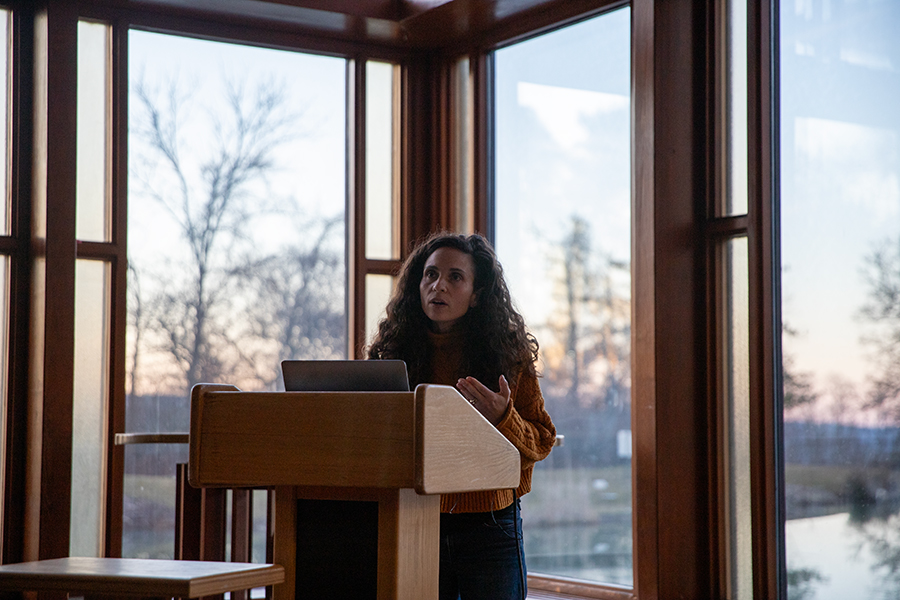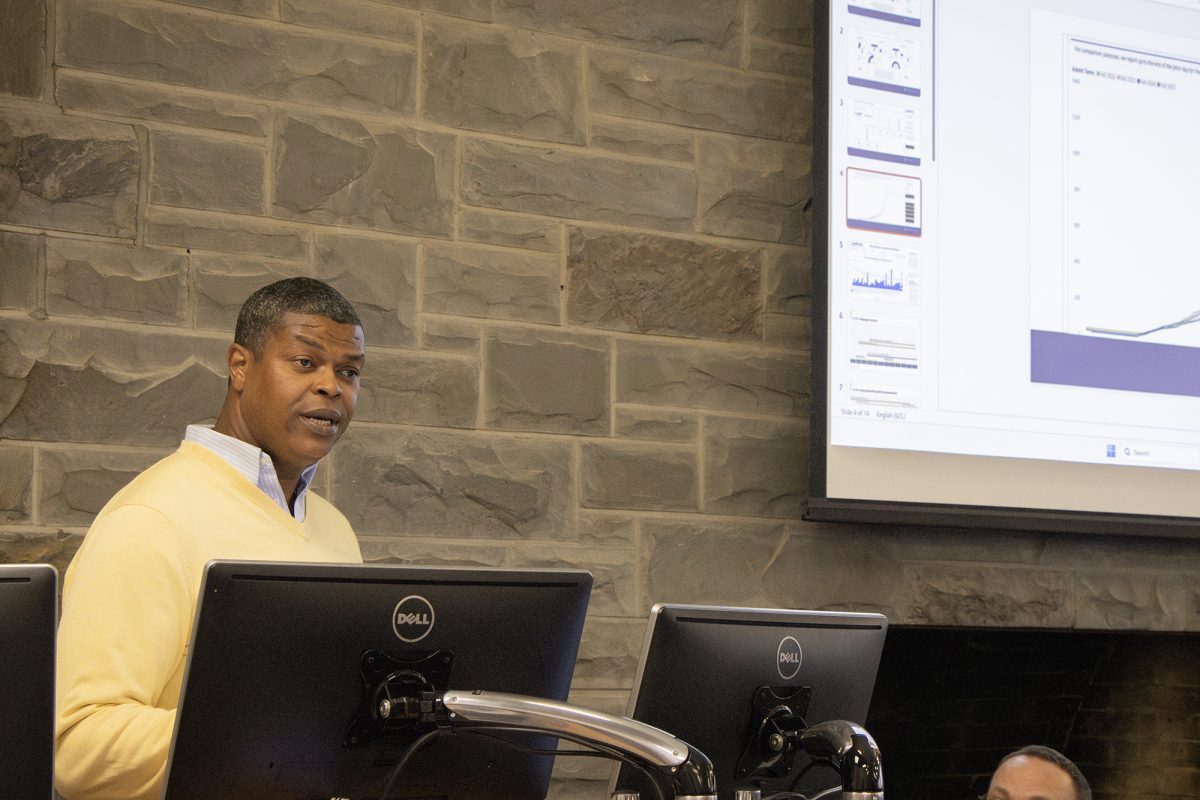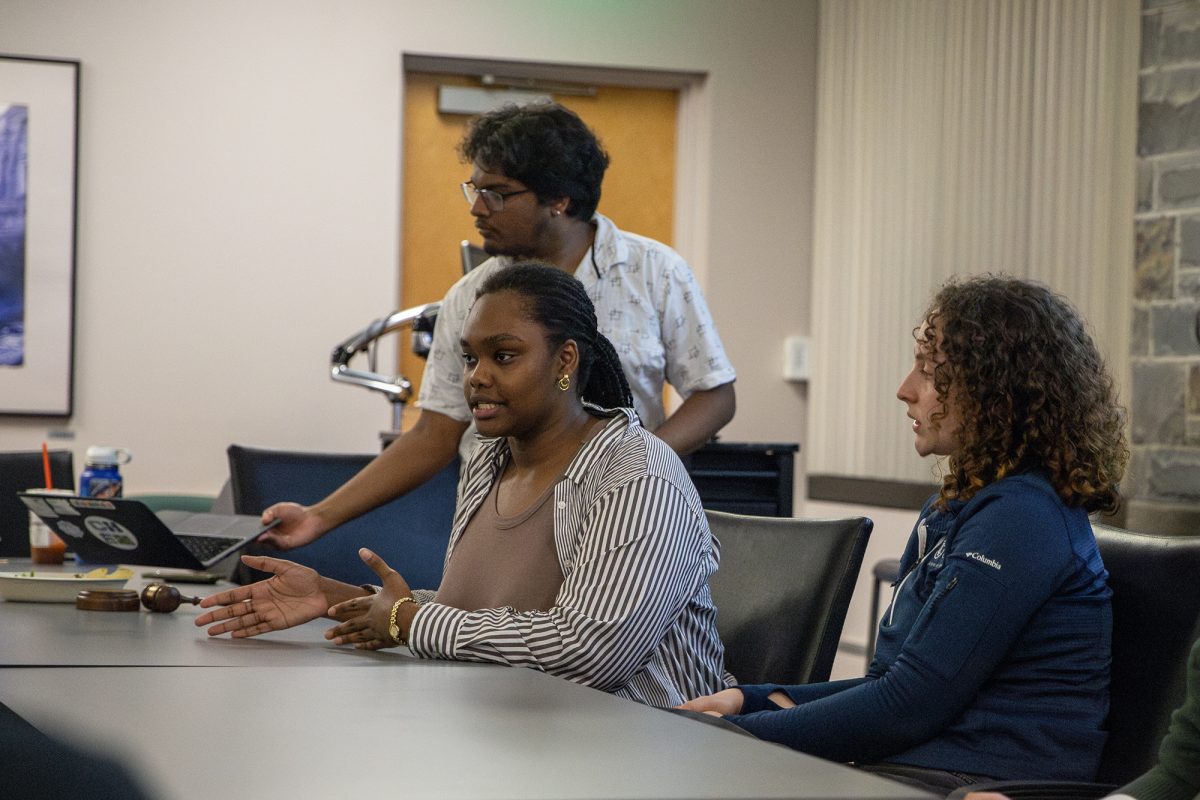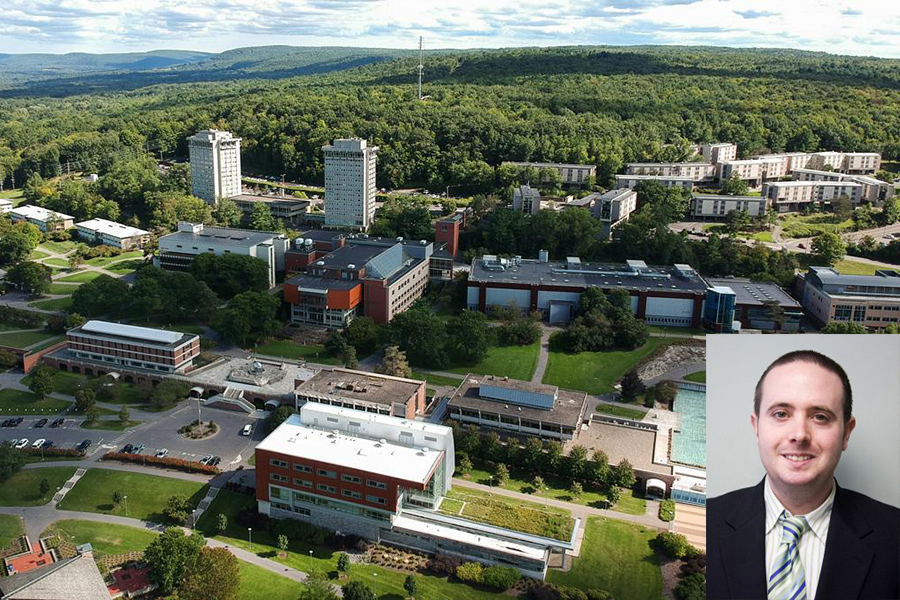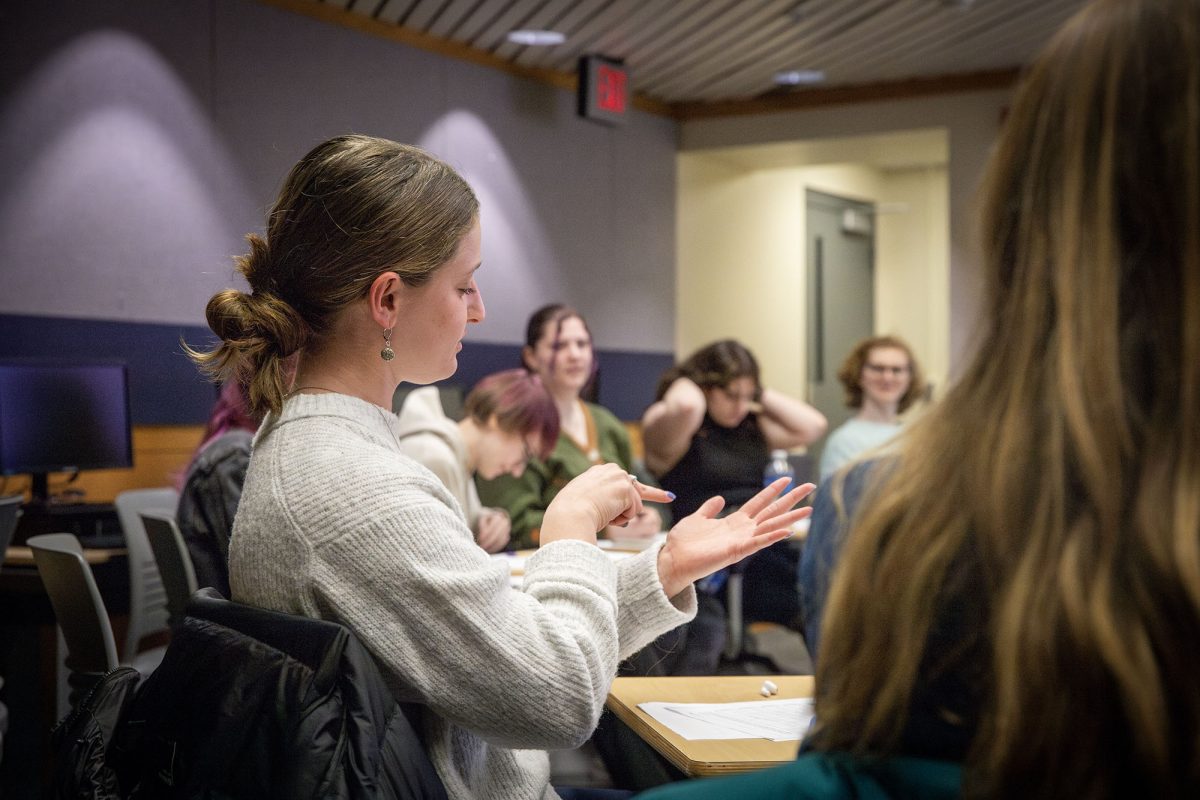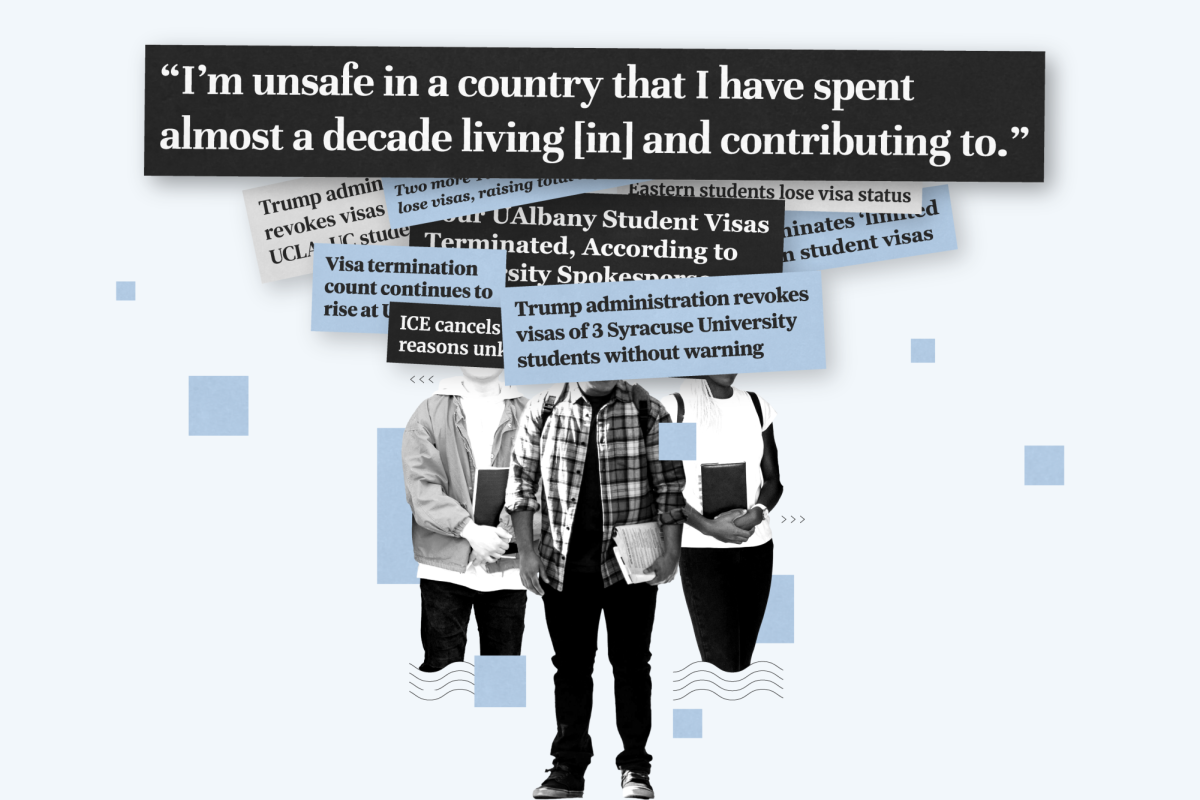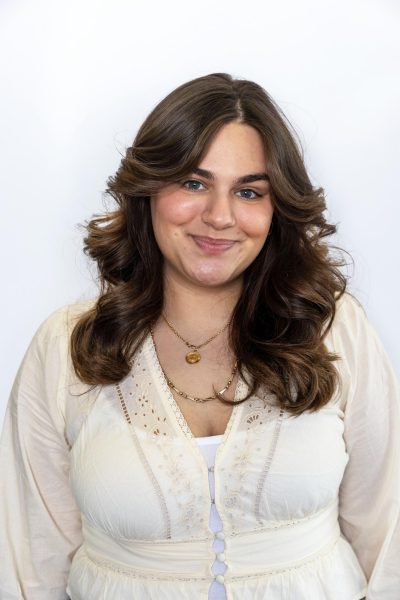Hillel at Ithaca College held a conversation on the history of the Israeli-Palestinian conflict in Muller Chapel Feb. 6. Muller Chapel was filled with around 70 people, ranging from students, faculty and administrators as the Office of Religious and Spiritual Life welcomed two lecturers back to campus for the fifth time in a reoccurring event called “Side-By-Side.”
The conversation featured Nizar Farsakh, lecturer of International Affairs at George Washington University and chair of the board of the Museum of the Palestinian People, and Uriel Abulof, visiting professor at Cornell University and associate professor at Tel Aviv University in Israel, who provided a Palestinian and Israeli perspective respectively on their histories in the Middle East. Both speakers joined virtually via Zoom.
The speakers reflected on the beliefs they used to hold because of the way they were raised and then the moments they questioned what they were taught.
Lauren Goldberg, associate director of Hillel at Ithaca College, said this year’s turnout for Side-By-Side was the largest they have had in five years. To prepare for the dialogue, Goldberg asked both presenters to highlight what they viewed as the four most significant developments in Israeli-Palestinian history. The presenters then reflected on their lived experiences surrounding that period, which they then shared with the attendees at the dialogue.
The two presenters did not talk to each other while deciding which four significant developments to chose, but coincidentally highlighted the same four events. Those were the first and second Intifada, the Oslo Accords and the Oct. 7 attacks.
The discussion began around the events of the first Intifada in the late 1980s. As a young boy at the time, Abulof said he didn’t understand the intricacies of the conflict and was confused as to why Israelis and Palestinians could not just have their own state.
“My insight from [the time] was that what Jews were trying to do — the Zionist endeavor — and what Palestinians are trying to do were the same,” Abulof said. “So if the Jewish people manage to get the State of Israel, why shouldn’t Palestinians?”
Farsakh said this neglect and historical oppression caused him to sympathize with Arab countries like Iraq during the Gulf Wars.
“A lot of people celebrated that a nationalist Arab country defeated an oil monarchy,” Farsakh said. “Back then it was about a sense of strength, after years of humiliation by Western governments, [an Arab country was fighting back]. Now when I look back, I’m horrified that I could take this stance when it was an occupation.”
Farsakh said that the Oct. 7 attacks, while appalling, were a desperate attempt at breaking the apartheid mindset that has plagued the Gaza Strip.
“It was destroying that myth that you do not need to talk to the Palestinians and you can just dismiss them,” Farsakh said. “It was so offensive to see that Americans, the Europeans, really getting outraged at the massacre of Israelis, but then completely, absolutely zero empathy to what had happened to Palestinians [before that].”
Farsakh acknowledged that the constant violence has resulted in a cycle of victimization, of which no one benefits from, something Abulof resonated with.
“These acts of terror, [like those] that took place on Oct. 7, will have no deterrent effect,” Abulof said. “It is only perpetuating the cycle of violence.”
To help move beyond the violence, Abulof appealed to Palestinians to commit to introspective soul-searching to help end the cycle of violence. Farsakh noted that, given the current and historical situation that Palestinians are in, that they do not have the ability.
“Palestinians do not have the luxury of morality,” Farsakh said. “There is such a power differential, there is a continuous violation of what we claim to stand for.”
Farsakh referred to the current state of Gaza, which has been declared a humanitarian crisis by the United Nations, because of the Israeli government’s siege on the area since Oct. 7. The conditions have caused many to call for a ceasefire, something that was not specifically addressed during the dialogue. As of Feb. 1, the death toll in Gaza has surpassed 27,000 and 66,139 people have been wounded.
On the subject of potential solutions to the conflict, Abdulof said the biggest impediment to a two-state solution is political will.
“A two-state solution is not a question of capacity, but of will,” Abdulof said. “If there is a will, there is a way.”
Abulof said he would accept a two-state solution but cares about ensuring equality as well.
The event prompted controversy across campus. About 40 students took to Textor Hall to demonstrate a sit-in in opposition to the talk, more specifically of the return of Abulof. Students participating in the sit-in said they felt Abulof holds beliefs that should not be given a platform at the college.
Senior Rachel Gellman attended the event in Spring 2022 and returned to listen this February.
“I don’t think that an event that is about nuance, and seeing both sides should be controversial,” Gellman said.
Sophomores Lauren Leighow and Lee Kreshtool attended the event together. Kreshtool said she initially considered participating in the sit-in instead.
“When we first talked about this event, I was saying that I wanted to go to the sit-in,” Kreshtool said. “I wanted to be more active in supporting Palestine because there have not been many protests or demonstrations. … I wanted any chance to be an activist in that.”
Leighow said she felt the Side-By-Side would more fully express her activism, though she believes the intentions of the sit-in were good.
“The protest that is happening today encouraged me to actually see what happened with the conversation instead of just assuming what an Israeli’s perspective is on it,” Kreshtool said.
Leighow said discussing ideas openly facilitates responsible activism.
“My point was, this is how you do it,” Leighow said. “I think by listening, and by attending, by learning, instead of closing off any attempt at conversation, I think this is the way you become more active.”
First-year student Aya Oulida, president of Ithaca College Students for Justice in Palestinian (ICSJP), held apprehensions about coming to the event because of Abulof. Oulida said she felt the Side-By-Side was not equal ground. Abulof was on Zoom in Jerusalem, Israel and Farsakh was in Washington, D.C.
“It wasn’t just the location being in America, it is that one was closer to the actual war, and you could not tell,” Oulida said. “If it was someone who was in Palestine, you would easily be able to tell they were in the midst of an occupation.”
Oulida said SJP is hoping to plan an event with a speaker who has recently returned from Palestine to speak on their experience.
Editor’s note: the original version of the article inaccurately attributed Kreshtool and Leighow’s quotes, which have now been quoted correctly.


